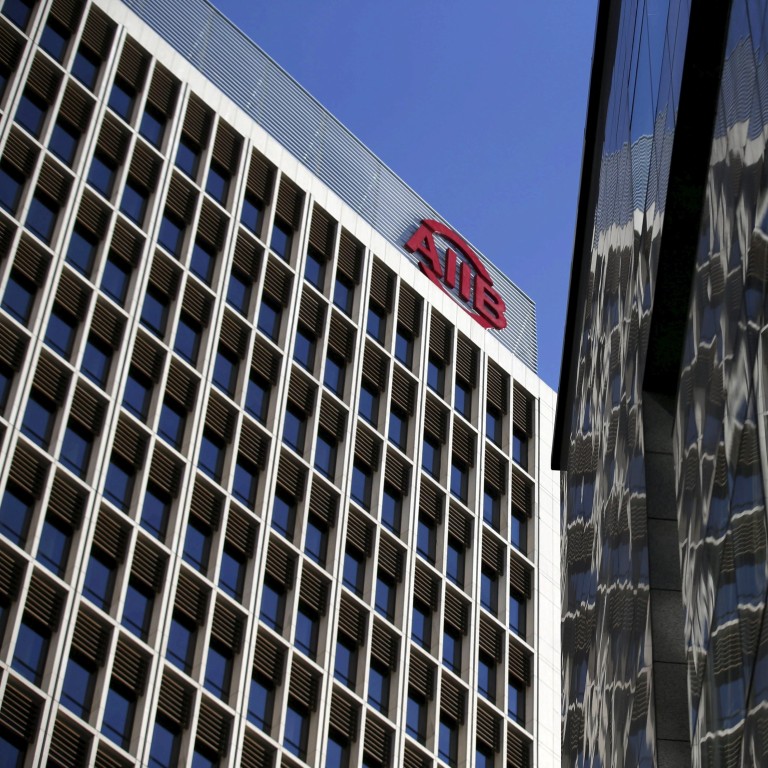
Exclusive | China-backed infrastructure bank AIIB to start local currency financing amid trade war, forex concerns
- Infrastructure bank to pilot local currency financing in India rupee, Indonesian rupiah, says vice-president
The Beijing-headquartered Asian Infrastructure Investment Bank (AIIB) will soon conduct financing activity in local currencies, in response to significant demand from member countries amid an escalating trade war between China and the United States and related uncertainties, it said on Monday.
“From the second half of this year, we are going to start piloting local currency financing, in currencies such as the Indian rupee and the Indonesian rupiah, for example,” Danny Alexander, the bank’s vice-president and former chief secretary of the UK Treasury, said in Hong Kong.
The trade war has raised concerns about currency fluctuations and related risks because of exposure to US dollar-denominated loans.
“This is a reasonable move for AIIB, carrying significance that is both financial and political,” said Zhou Hao, an economist at Commerzbank.
“The structure of a loan is essentially decided by the borrower. For a multinational company, it may want US dollar loans as needs it for international procurement. But for a local contractor, it may want local currency loans as the payment will be mainly in the region, and the return it receives will also be in local currency,” he said.
Russia keen to sell yuan bonds, reduce US dollar dependence
The US dollar overwhelming dominates cross-border payments, but the AIIB is exploring diversification, Zhou said.
Local currency financing will be conducted through dollar swaps initially, the bank said. In the longer term, it will raise money in local currencies from local markets as well, Alexander said. AIIB has been raising US dollars as funds and has been structuring loans in the greenback so far.
The bank started operations in January 2016, and has invested US$8 billion in 40 projects in 16 countries, most of them in Asia. India has been its top recipient – AIIB has financed nine projects in the country in sectors such as energy, transport and water, according to bank data. It has also financed five projects in Indonesia.
US-China trade war, financial transparency to spur more belt and road project
Local currency financing is being initiated “very much in response to the significant demand we have found”, Alexander said. Trade and geopolitical uncertainties are affecting the bank’s member countries, which now number at 97 countries and regions, he said.
Alexander also said protectionism and tariffs had reinforced the importance of AIIB as “a counter example” that shows multinational institutions still help countries achieve common objectives.
The bank is still at an early stage of growth, which means its return rate data is not quite available, he said.
Its close connection with governments means projects are structured in an “attractive and bankable” way, he said.
The United States and Japan are not AIIB members – even though the bank’s doors are open, according to its top brass – and this has not stopped cooperation at an operational level, Alexander said.
“When the AIIB was founded, there were some concerns, particularly from the US, about the bank operating to a high standard.
“I think now people can see the bank has taken its place as a multinational institution. We have formed close partnerships with the World Bank, and the Asia Development Bank. We operate at the highest international standards. So these concerns no longer exist,” Alexander said.

